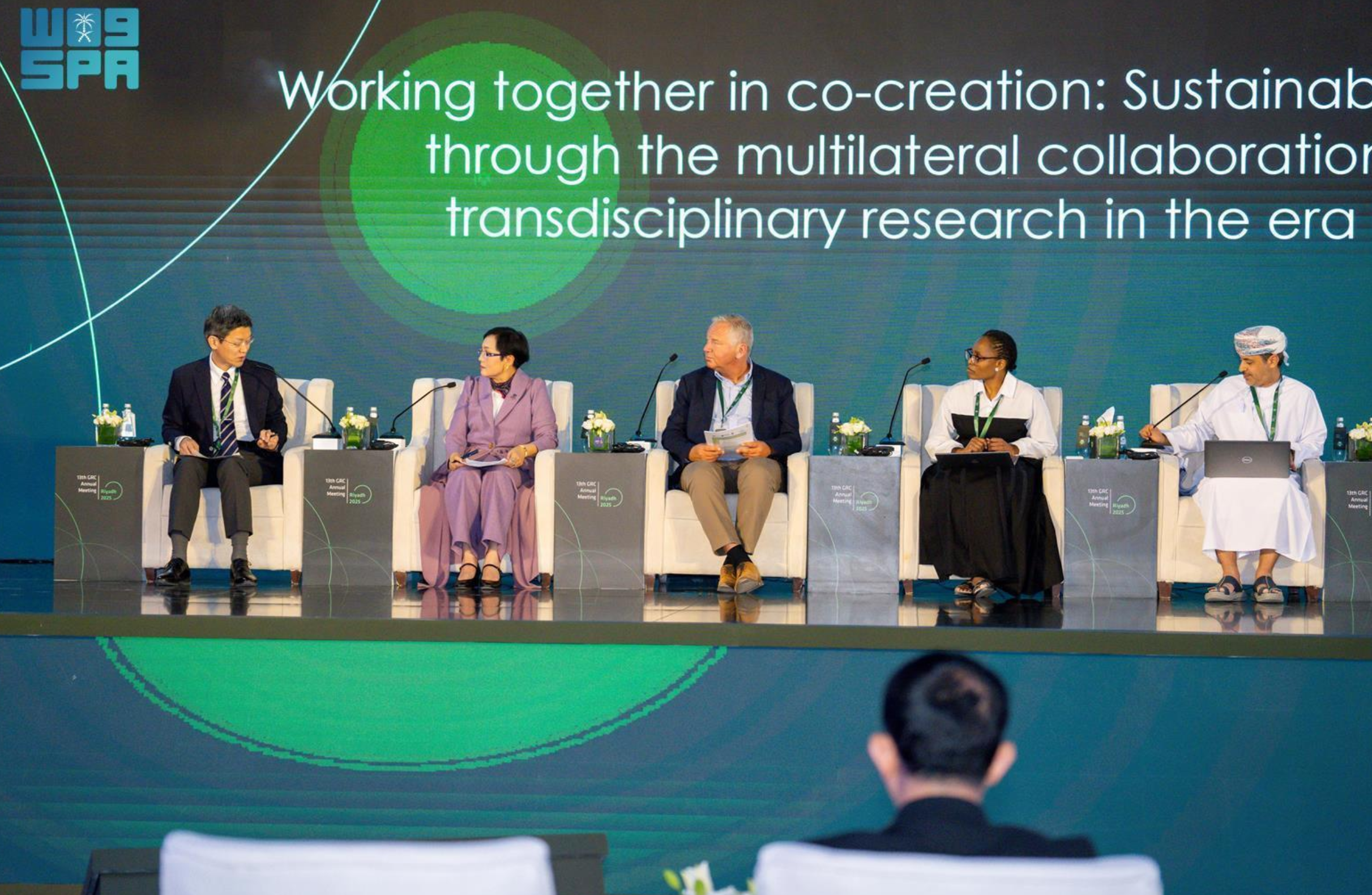
Governing Board of Global Research Council Convenes Regular Meeting in Riyadh
The Governing Board of the Global Research Council (GRC) held its regular meeting on Monday, alongside the council’s 13th Annual Meeting. The gathering, hosted by the Kingdom in the capital Riyadh, was organized by King Abdulaziz City for Science and Technology (KACST) and the Research, Development, and Innovation Authority (RDIA), in partnership with the Scientific and Technological Research Council of Türkiye (TÜBİTAK).
President of KACST and Vice Chair of the GRC Dr. Munir Eldesouki represented the Kingdom and the Middle East and North Africa (MENA) region on the board. Discussions focused on the council’s flexible governance model.
President of Canada’s Natural Sciences and Engineering Research Council Dr. Alejandro Adem was re-elected as chair for a two-year term. Chief Executive of the Research Council of Norway Dr. Mari Teveth was also elected as vice chair for the same term.
On the sidelines of the meeting, a series of side events addressed critical issues shaping the future of scientific research. One highlight was Saudi Arabia’s initiative, the "Global Responsible Research and Innovation Index", which proposes unified, socially and economically aware standards for evaluating research impact.
Experts discussed reimagining the global research ecosystem to foster greater equity and inclusion, with an emphasis on fair resource distribution and bridging the technological divide between developed and developing countries.
Artificial intelligence (AI) and its growing impact on research were among the key themes. Presentations showcased real-world applications of AI in accelerating discovery, while also tackling ethical challenges. Participants explored new models for funding open access and knowledge sharing, and emphasized the need for modern researcher evaluation systems that prioritize societal impact over traditional metrics.
Sustainable research in an era of multilateral collaboration and rapid transformation was another focus. Dialogues addressed balancing intellectual property protection with open knowledge for the public good, offering diverse regional perspectives on open science practices.
The sessions highlighted emerging AI tools for analyzing scientific literature and identifying underutilized funding opportunities to enhance international collaboration. The Philippines’ Department of Science and Technology presented a digital platform that uses natural language processing to measure research impact beyond academia.
In-depth discussions were held on responsible research assessment frameworks aligned with the Sustainable Development Goals (SDGs), shifting from traditional benchmarks to models that emphasize tangible contributions to global challenges.








